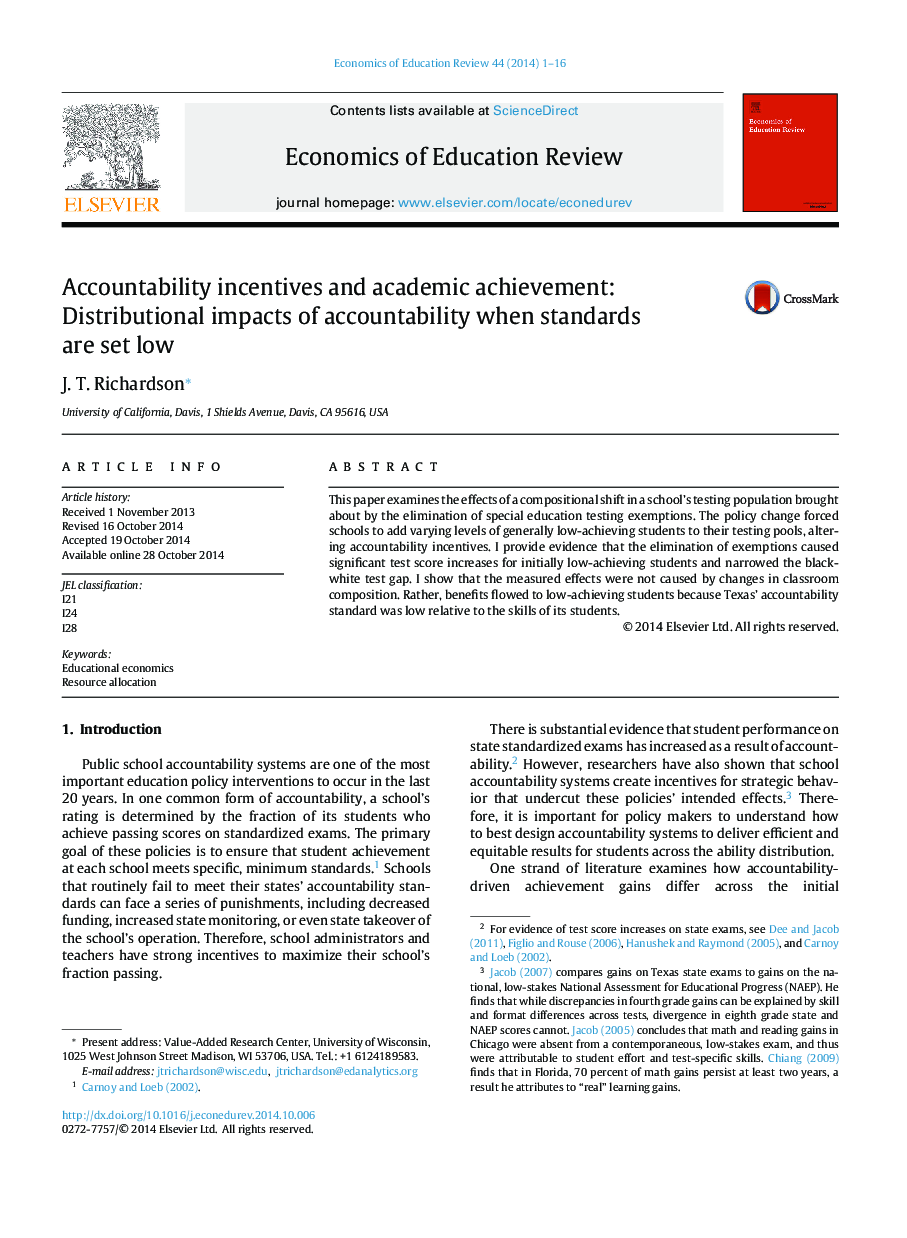| Article ID | Journal | Published Year | Pages | File Type |
|---|---|---|---|---|
| 354362 | Economics of Education Review | 2015 | 16 Pages |
•I examine the effects of a compositional shift in a school’s testing population.•I exploit a plausibly exogenous elimination of testing exemptions in Texas.•Within-school, cross-cohort variation in exemptions identifies the effects.•Test gains flowed to those with previous achievement near the proficiency standard.•Low standards benefited low-scoring students and decreased black-white gaps.
This paper examines the effects of a compositional shift in a school’s testing population brought about by the elimination of special education testing exemptions. The policy change forced schools to add varying levels of generally low-achieving students to their testing pools, altering accountability incentives. I provide evidence that the elimination of exemptions caused significant test score increases for initially low-achieving students and narrowed the black-white test gap. I show that the measured effects were not caused by changes in classroom composition. Rather, benefits flowed to low-achieving students because Texas’ accountability standard was low relative to the skills of its students.
